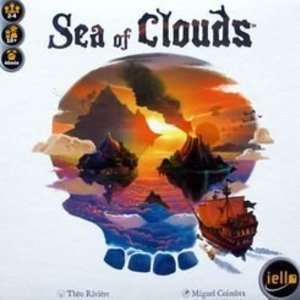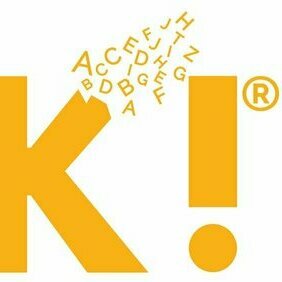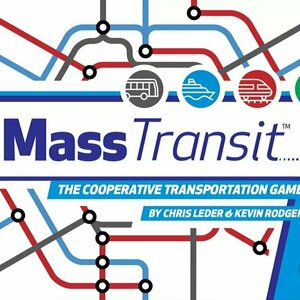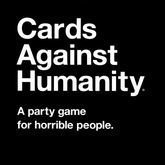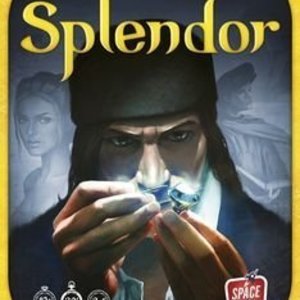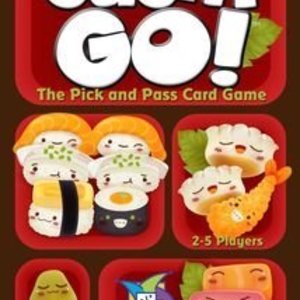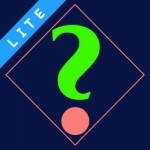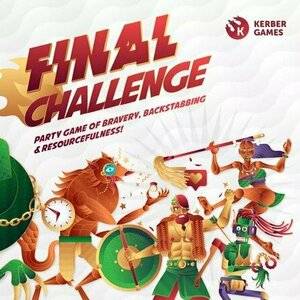Search
Search results
Purple Phoenix Games (2266 KP) rated Sea of Clouds in Tabletop Games
Sep 5, 2019 (Updated Jul 1, 2020)
When it comes to game themes, I think that we at Purple Phoenix Games are pretty good at trying just about anything. That being said, for some reason we keep finding ourselves back at pirates! So how does Sea of Clouds compare to our other pirate-themed games? Is it a good First Mate, or does it need to walk the plank? Keep reading to find out!
In Sea of Clouds, players are Captains of mighty air pirate ships. That’s right – flying pirate ships! Just like the pirate days of yore, your goal is to recruit the best crew, plunder for treasure and relics, and find the best rum along the way. But be careful because your rival pirate Captains have their eyes on the same prize – so make sure you’ve got a way to outsmart them and sail your way to victory!
Sea of Clouds is a game of card drafting, set collection, and push your luck in which players are trying to amass the most end-game victory points. Played over a series of rounds, players take turns drafting cards, performing bonus actions, and engaging in combat with their neighboring Captains. To setup, each player takes their chosen Captain board, the central board is placed in the middle of all players, and 1 loot card is placed face-down on each of the 3 loot spaces on the central board. The remaining cards are shuffled and create a draw pile. Now you are ready to play!
Each round consists of divvying up shares of loot between all players. On your turn, you will take the face-down card(s) in the #1 loot spot and look at them secretly. Decide whether you want to take the share, or leave it and look at the next one. If you decide to keep the card(s), add them directly around your Captain board in their corresponding spaces. If you decided to leave the share, add 1 card from the top of the draw pile to that share, and then look secretly at the cards in the #2 loot spot. Proceed in the same manner as before with the cards in the #2 and #3 loot spots, if necessary. If none of the shares catch your fancy, draw 1 card from the top of the draw deck to add to your ship. Play continues to the left, and once everyone has had their turn, move the round marker ahead on the central board, and continue on to the next round in the same fashion. At the end of certain rounds of the game, following the divvying of shares, there will be a boarding/combat turn – players will compare the combat strength of their crew (recruited during the divvying of shares) to that of their neighboring Captains. If your crew’s strength is greater than your neighbor, resolve any rewards/effects on your pirate cards. If your strength is less than your neighbor, you lose the combat and do not collect any rewards. Once all combats have been resolved, everyone discards all their crew cards, and the next round begins. At the end of the game, players count up their victory points, and the player who has amassed the most is the winner!
I’m going to get right to the spoilers and say that I love Sea of Clouds. It has some of my favorite mechanics (set collection and card drafting) and it is easy to teach, learn, and play. Do not let the simplicity of play fool you, however, because strategy is definitely a key to victory. One thing that takes this strategy to the next level for me is that there will be times when all players know what cards are in each share of loot. You’ve got to pay attention to which shares your opponents are taking, and figure out a way to stop them from collecting complete sets, or try to force them to collect a share they may not necessarily want. Also, as shares go unclaimed, they get more cards (and eventually money) added to them, so you have to weigh the risks of collecting a share because of one specific card, even though there may be a ‘bad’ card in that share for you. You always have to be adjusting your strategy based on what cards show up in each share, so there is no idle time for any player in this game.
Another neat thing I like about the strategy of this game is that all the cards have backs based on their card type. So all Relic cards have the same back, all Crew cards have the same back, etc. Even though you may not know what is on the other side of the card, you might just take a chance on a share of loot because it has the card types you are trying to get. That’s where the push your luck comes in, because until you look at a share of loot, you aren’t sure if that card is the one you need. Maybe share #1 has a couple cards you could use, but share #2 has a relic card that could be the final one in your set! Are you willing to risk passing up a decent share of loot to see if the next share has what you need? Or maybe the top of the draw deck has the card type you want – would you pass up all 3 shares of loot for one blindly draw card in hopes that it is to your benefit? There is no single ‘right’ way to play, and that is what makes this fun.
The only drawbacks of this game for me are the boarding/combat turns. I like the idea of this player interaction, but it doesn’t always work fairly in my opinion. At the end of each boarding/combat turn, all players discard all of their Crew cards, and you have until the next boarding phase to recruit a new crew. And sometimes, just based on the luck of the draw, you just never get the opportunity to hire anybody. Maybe your opponent takes the share with a Crew member before you get a chance to, or maybe the deck just isn’t evenly shuffled enough to get enough Crew cards out into the playing field. So if you have no Crew, you automatically lose the combat, and that can be detrimental to your strategy – opponents could steal or discard some of your cards, and cause you to lose end-game points. Maybe if there was a draw pile where you could pay a certain amount of gold to hire a Crew member, that would make the game feel a little more fair in the combat department. But ultimately, you’re at the mercy of the luck of the shuffle/draw, and sometimes it just doesn’t balance out.
All in all, I think Sea of Clouds is a great game. It’s a relatively simple game, but one that still requires strategic thought. The push your luck element feels unique in this game because you don’t really lose anything if your luck runs out, you just don’t necessarily get as far as you wanted. The game itself is pretty to look at – the artwork is very well-done and the colors really pop and draw the eye to the cards. This may not be in my Top 10 of favorite games, but it’s one that I will definitely be keeping in my collection. Take a chance on this one if you haven’t so far – it might surprise you. Purple Phoenix Games gives Sea of Clouds a high-flying 12 / 18.
In Sea of Clouds, players are Captains of mighty air pirate ships. That’s right – flying pirate ships! Just like the pirate days of yore, your goal is to recruit the best crew, plunder for treasure and relics, and find the best rum along the way. But be careful because your rival pirate Captains have their eyes on the same prize – so make sure you’ve got a way to outsmart them and sail your way to victory!
Sea of Clouds is a game of card drafting, set collection, and push your luck in which players are trying to amass the most end-game victory points. Played over a series of rounds, players take turns drafting cards, performing bonus actions, and engaging in combat with their neighboring Captains. To setup, each player takes their chosen Captain board, the central board is placed in the middle of all players, and 1 loot card is placed face-down on each of the 3 loot spaces on the central board. The remaining cards are shuffled and create a draw pile. Now you are ready to play!
Each round consists of divvying up shares of loot between all players. On your turn, you will take the face-down card(s) in the #1 loot spot and look at them secretly. Decide whether you want to take the share, or leave it and look at the next one. If you decide to keep the card(s), add them directly around your Captain board in their corresponding spaces. If you decided to leave the share, add 1 card from the top of the draw pile to that share, and then look secretly at the cards in the #2 loot spot. Proceed in the same manner as before with the cards in the #2 and #3 loot spots, if necessary. If none of the shares catch your fancy, draw 1 card from the top of the draw deck to add to your ship. Play continues to the left, and once everyone has had their turn, move the round marker ahead on the central board, and continue on to the next round in the same fashion. At the end of certain rounds of the game, following the divvying of shares, there will be a boarding/combat turn – players will compare the combat strength of their crew (recruited during the divvying of shares) to that of their neighboring Captains. If your crew’s strength is greater than your neighbor, resolve any rewards/effects on your pirate cards. If your strength is less than your neighbor, you lose the combat and do not collect any rewards. Once all combats have been resolved, everyone discards all their crew cards, and the next round begins. At the end of the game, players count up their victory points, and the player who has amassed the most is the winner!
I’m going to get right to the spoilers and say that I love Sea of Clouds. It has some of my favorite mechanics (set collection and card drafting) and it is easy to teach, learn, and play. Do not let the simplicity of play fool you, however, because strategy is definitely a key to victory. One thing that takes this strategy to the next level for me is that there will be times when all players know what cards are in each share of loot. You’ve got to pay attention to which shares your opponents are taking, and figure out a way to stop them from collecting complete sets, or try to force them to collect a share they may not necessarily want. Also, as shares go unclaimed, they get more cards (and eventually money) added to them, so you have to weigh the risks of collecting a share because of one specific card, even though there may be a ‘bad’ card in that share for you. You always have to be adjusting your strategy based on what cards show up in each share, so there is no idle time for any player in this game.
Another neat thing I like about the strategy of this game is that all the cards have backs based on their card type. So all Relic cards have the same back, all Crew cards have the same back, etc. Even though you may not know what is on the other side of the card, you might just take a chance on a share of loot because it has the card types you are trying to get. That’s where the push your luck comes in, because until you look at a share of loot, you aren’t sure if that card is the one you need. Maybe share #1 has a couple cards you could use, but share #2 has a relic card that could be the final one in your set! Are you willing to risk passing up a decent share of loot to see if the next share has what you need? Or maybe the top of the draw deck has the card type you want – would you pass up all 3 shares of loot for one blindly draw card in hopes that it is to your benefit? There is no single ‘right’ way to play, and that is what makes this fun.
The only drawbacks of this game for me are the boarding/combat turns. I like the idea of this player interaction, but it doesn’t always work fairly in my opinion. At the end of each boarding/combat turn, all players discard all of their Crew cards, and you have until the next boarding phase to recruit a new crew. And sometimes, just based on the luck of the draw, you just never get the opportunity to hire anybody. Maybe your opponent takes the share with a Crew member before you get a chance to, or maybe the deck just isn’t evenly shuffled enough to get enough Crew cards out into the playing field. So if you have no Crew, you automatically lose the combat, and that can be detrimental to your strategy – opponents could steal or discard some of your cards, and cause you to lose end-game points. Maybe if there was a draw pile where you could pay a certain amount of gold to hire a Crew member, that would make the game feel a little more fair in the combat department. But ultimately, you’re at the mercy of the luck of the shuffle/draw, and sometimes it just doesn’t balance out.
All in all, I think Sea of Clouds is a great game. It’s a relatively simple game, but one that still requires strategic thought. The push your luck element feels unique in this game because you don’t really lose anything if your luck runs out, you just don’t necessarily get as far as you wanted. The game itself is pretty to look at – the artwork is very well-done and the colors really pop and draw the eye to the cards. This may not be in my Top 10 of favorite games, but it’s one that I will definitely be keeping in my collection. Take a chance on this one if you haven’t so far – it might surprise you. Purple Phoenix Games gives Sea of Clouds a high-flying 12 / 18.
Purple Phoenix Games (2266 KP) rated SYNK! in Tabletop Games
Apr 27, 2021
I like to think of myself as a somewhat intelligent person. I can occasionally ‘win’ a game of Jeopardy while watching on tv…..ok, so maybe it’s just during Kids Week, but that’s gotta count for something, right?! Anyway, word games and trivia have always entertained me. So when I heard about Synk! – a game that involves both of those elements – I knew I had to try it out. Does this party game really put your knowledge to the test, or does it sink to the bottom of the stack? Keep reading to find out!
Disclaimer: We were provided with a copy of SYNK! for the purposes of this review. The components you see pictured might not be the finalized version, and could change after a successful Kickstarter campaign. -L
SYNK! is a party card game in which players will be mixing their knowledge of wordplay with a bit of trivia. The game is played over a series of rounds until one player has earned a total of 3 cards to win. Here’s how you setup the game: put the deck of cards facedown within reach of all players. Yep, that’s it. How you play is a little more involved…
First thing first – pick a starting player. That person will draw a card from the deck. On said card there will be a secret word, as well as its definition. Next, the player will reveal the first letter of the secret word. All others will then think of any word that begins with that first letter. When someone thinks they’ve come up with a good option, they say, “I’ve got it!” and will take a moment to describe their word to the group – giving the definition, providing an example, relying on someone’s specific knowledge, etc. Once another player thinks they know what word is being described, they will shout out “Synk!” These two players will countdown from 3 and say their words together, in hopes that they match. If their words do indeed match, then the keeper of the secret word will reveal the next letter. The process starts again, but now players must think of words that begin with the first AND second letter of the secret word. The round continues in this fashion until a player manages to guess the secret word and Synk it with another player. They win the card, and become the next secret word keeper.
What happens if you don’t Synk with someone? Then the next letter is not revealed, and the process starts again with the same letter(s) as before. If ever the game reaches a standstill and nobody has any ideas, the secret word keeper must reveal the word’s definition. Once the definition has been read, any player can shout out “Synk!” and guess the word immediately – you only get one guess though, so make it count! That all seems great for the players, but what about the secret word keeper? There’s a twist in the game to keep them engaged too! At the end of a Synk countdown, the card keeper is allowed to guess the described word too. If their guess is correct, no new letters are revealed. And as an added bonus, if another player guesses the correct secret word, but doesn’t Synk it with someone else, the card keeper wins the round and keeps that card for themselves! Play keeps going as described until one player has collected a total of 3 cards, thus winning the game.
I know that sounds like kind of a lot, but I promise that the gameplay is pretty intuitive and simple once you get going. And actually, although the physical gameplay may be simple, Synk! stretches your brain quite a bit. At the beginning of a round, with only 1 or 2 letters revealed, coming up with words is a piece of cake! But as the round progresses and more letters are revealed, it becomes more challenging than you might think to come up with words that use those specific letters in that specific order. And remember, this is a game after all – so speed is of the essence! Think too slowly and you’ll get left in the dust. As the secret word keeper, you get off the hook a little bit, since you don’t have to come up with words. But the ability to guess another player’s word at the end of a countdown allows the card keeper to stay engaged throughout the entire game. A neat little twist that adds another layer of strategy to the game.
To touch on components – this game is literally a giant deck of cards. Again, I am not sure if this is a finalized version of the game, but the quality of the box and cards is pretty great. There really is no artwork, but this isn’t that type of game, so it doesn’t detract at all from the gameplay. The text is large and clear, making for quick reading and understanding. All in all, already a great quality game.
Where does Synk! sit on my list of party games? Well, it depends on the group of players. This game has a suggested age of 14+, and I think that’s appropriate. Players have to have some decent knowledge of words/spelling to play, but aren’t expected to have a MENSA-level IQ. Some people love wordplay, and others don’t. But with the right group of gamers, I would absolutely pull this out on occasion. Synk! is more of a ‘thinky’ party game, and I really have never played a party game like it before. It fills a hole in my collection, and it will definitely be played with the right group. If you’re into word games, but are looking for something a little more fast-paced, consider backing Synk! on Kickstarter! The campaign goes live on May 18th, 2021!
Disclaimer: We were provided with a copy of SYNK! for the purposes of this review. The components you see pictured might not be the finalized version, and could change after a successful Kickstarter campaign. -L
SYNK! is a party card game in which players will be mixing their knowledge of wordplay with a bit of trivia. The game is played over a series of rounds until one player has earned a total of 3 cards to win. Here’s how you setup the game: put the deck of cards facedown within reach of all players. Yep, that’s it. How you play is a little more involved…
First thing first – pick a starting player. That person will draw a card from the deck. On said card there will be a secret word, as well as its definition. Next, the player will reveal the first letter of the secret word. All others will then think of any word that begins with that first letter. When someone thinks they’ve come up with a good option, they say, “I’ve got it!” and will take a moment to describe their word to the group – giving the definition, providing an example, relying on someone’s specific knowledge, etc. Once another player thinks they know what word is being described, they will shout out “Synk!” These two players will countdown from 3 and say their words together, in hopes that they match. If their words do indeed match, then the keeper of the secret word will reveal the next letter. The process starts again, but now players must think of words that begin with the first AND second letter of the secret word. The round continues in this fashion until a player manages to guess the secret word and Synk it with another player. They win the card, and become the next secret word keeper.
What happens if you don’t Synk with someone? Then the next letter is not revealed, and the process starts again with the same letter(s) as before. If ever the game reaches a standstill and nobody has any ideas, the secret word keeper must reveal the word’s definition. Once the definition has been read, any player can shout out “Synk!” and guess the word immediately – you only get one guess though, so make it count! That all seems great for the players, but what about the secret word keeper? There’s a twist in the game to keep them engaged too! At the end of a Synk countdown, the card keeper is allowed to guess the described word too. If their guess is correct, no new letters are revealed. And as an added bonus, if another player guesses the correct secret word, but doesn’t Synk it with someone else, the card keeper wins the round and keeps that card for themselves! Play keeps going as described until one player has collected a total of 3 cards, thus winning the game.
I know that sounds like kind of a lot, but I promise that the gameplay is pretty intuitive and simple once you get going. And actually, although the physical gameplay may be simple, Synk! stretches your brain quite a bit. At the beginning of a round, with only 1 or 2 letters revealed, coming up with words is a piece of cake! But as the round progresses and more letters are revealed, it becomes more challenging than you might think to come up with words that use those specific letters in that specific order. And remember, this is a game after all – so speed is of the essence! Think too slowly and you’ll get left in the dust. As the secret word keeper, you get off the hook a little bit, since you don’t have to come up with words. But the ability to guess another player’s word at the end of a countdown allows the card keeper to stay engaged throughout the entire game. A neat little twist that adds another layer of strategy to the game.
To touch on components – this game is literally a giant deck of cards. Again, I am not sure if this is a finalized version of the game, but the quality of the box and cards is pretty great. There really is no artwork, but this isn’t that type of game, so it doesn’t detract at all from the gameplay. The text is large and clear, making for quick reading and understanding. All in all, already a great quality game.
Where does Synk! sit on my list of party games? Well, it depends on the group of players. This game has a suggested age of 14+, and I think that’s appropriate. Players have to have some decent knowledge of words/spelling to play, but aren’t expected to have a MENSA-level IQ. Some people love wordplay, and others don’t. But with the right group of gamers, I would absolutely pull this out on occasion. Synk! is more of a ‘thinky’ party game, and I really have never played a party game like it before. It fills a hole in my collection, and it will definitely be played with the right group. If you’re into word games, but are looking for something a little more fast-paced, consider backing Synk! on Kickstarter! The campaign goes live on May 18th, 2021!
Purple Phoenix Games (2266 KP) rated Mass Transit in Tabletop Games
May 13, 2021
Remember back in the day when you used to get off work, have to walk a ways to the bus station, then hop a train to the marina so you could grab a boat, and then walk the rest of the way home? No? Just me? Well imagine having to plan six different peoples’ treks home this way. Which way is the easiest? Can they all make it home by dinner time? Did that guy just prematurely jump off the boat to try to get to the train? What am I even doing here?
Mass Transit is a cooperative, network building card game where players take on the roles of urban planners attempting to lay routes for commuters to head to and from work in the Big City. As the game is cooperative, all urban planners either win or lose together. But in either case, it’s the commuteeples (maybe?) that win or lose.
DISCLAIMER: We were provided a copy of this game for the purposes of this review. This is a retail copy of the game, so what you see in these photos is exactly what would be received in your box. I do not intend to cover every single rule included in the rulebook, but will describe the overall game flow and major rule set so that our readers may get a sense of how the game plays. For more in depth rules, you may purchase a copy online or from your FLGS. -T
To setup, assemble the Big City tiles to make a sweet hexagon. Each commuteeple (ok I think I’m not doing this one any longer) is placed on their worksite in the Big City. Shuffle the big deck of Mass Transit cards and deal each player four cards. The players choose a first player and the game may begin!
On a turn players will need to play at least two of their cards and can play up to all four if they wish. The choices of card play are to add it to a route line or discard it for movement. To add the card to the route line, players simply choose a route line and place the card at the end. This extends the route by one card. To finish a route, players will need to place the suburb card at the end of a line with the appropriate number of cards (some suburbs may show a 4, which means they can only be placed once four route cards have been placed in the same line).
The other way to play cards are to discard them for movement. Cards are discarded out of the game and used for the printed movement type. Green cards are walking, blue are ferry, gray are bus, red are train, and yellow are unavailable to use for movement. For example, a player could discard a green walk card in order to move the meeple one card closer to the suburb card, or could use a red train card in order to move the meeple from one train station icon to the next (which could actually move the meeple over several cards at once). There are some movement restrictions, such as the inability for meeples to simply jump out of a vehicle at a Traffic Stop in order to take an alternate movement type.
If the players can all work together (without expressly verbalizing strategy) and move all six meeples to their suburb homes before a player is unable to play two cards from their hands, they win! However, should a player be unable to play the required two cards from their hand and all meeples are not in their comfy homes, the players all lose together in sweet sadness.
Components. I absolutely love the interconnecting Big City tiles. They are just the right size, and even hold the draw deck. Speaking of the deck, the cards are all nice quality with slight linen finish and excellent graphic stylization. Mass Transit looks great on the table and when finished, looks like a funky subway map with little blue meeples. The meeples come with a sticker sheet, and while you can add your favorite stickers to one side of the meeple, we opted to just randomly add stickers to both sides and it works for us. I have zero issues with the components, and have come to expect that from Calliope Games titles.
All in all, this little game packs a great experience into about 15 or 20 minutes. What I really enjoy is trying to figure out the best usage for the cards in hand. Is it better to use the gray card to add to the route or to use it for fast travel (any Skyrim fans out there?)? To add to this thinkiness, the rules explicitly state that players are unable to discuss strategies, but can hint aloud at what they may be considering. So while this is not a silent game, players will need to carefully decide how best to communicate what they wish the party to accomplish without specifically stating such.
Mass Transit is a game that I can easily pull out and play with my 10-year-old twin niece and nephew, with other adults, or with harder gamers. When a small game can be so versatile, it certainly earns a place in my collection. If you are also looking for a small box game with a smallish table footprint and great presence, consider picking up a copy of Mass Transit. Purple Phoenix Games gives this one a blues travelin’ (hehe) 11 / 12. Pro tip: use the yellow cards early and for route addition only, as they cannot be used for movement. Also, stay away from alpha gamers, and they might not be able to handle the communication ban.
Mass Transit is a cooperative, network building card game where players take on the roles of urban planners attempting to lay routes for commuters to head to and from work in the Big City. As the game is cooperative, all urban planners either win or lose together. But in either case, it’s the commuteeples (maybe?) that win or lose.
DISCLAIMER: We were provided a copy of this game for the purposes of this review. This is a retail copy of the game, so what you see in these photos is exactly what would be received in your box. I do not intend to cover every single rule included in the rulebook, but will describe the overall game flow and major rule set so that our readers may get a sense of how the game plays. For more in depth rules, you may purchase a copy online or from your FLGS. -T
To setup, assemble the Big City tiles to make a sweet hexagon. Each commuteeple (ok I think I’m not doing this one any longer) is placed on their worksite in the Big City. Shuffle the big deck of Mass Transit cards and deal each player four cards. The players choose a first player and the game may begin!
On a turn players will need to play at least two of their cards and can play up to all four if they wish. The choices of card play are to add it to a route line or discard it for movement. To add the card to the route line, players simply choose a route line and place the card at the end. This extends the route by one card. To finish a route, players will need to place the suburb card at the end of a line with the appropriate number of cards (some suburbs may show a 4, which means they can only be placed once four route cards have been placed in the same line).
The other way to play cards are to discard them for movement. Cards are discarded out of the game and used for the printed movement type. Green cards are walking, blue are ferry, gray are bus, red are train, and yellow are unavailable to use for movement. For example, a player could discard a green walk card in order to move the meeple one card closer to the suburb card, or could use a red train card in order to move the meeple from one train station icon to the next (which could actually move the meeple over several cards at once). There are some movement restrictions, such as the inability for meeples to simply jump out of a vehicle at a Traffic Stop in order to take an alternate movement type.
If the players can all work together (without expressly verbalizing strategy) and move all six meeples to their suburb homes before a player is unable to play two cards from their hands, they win! However, should a player be unable to play the required two cards from their hand and all meeples are not in their comfy homes, the players all lose together in sweet sadness.
Components. I absolutely love the interconnecting Big City tiles. They are just the right size, and even hold the draw deck. Speaking of the deck, the cards are all nice quality with slight linen finish and excellent graphic stylization. Mass Transit looks great on the table and when finished, looks like a funky subway map with little blue meeples. The meeples come with a sticker sheet, and while you can add your favorite stickers to one side of the meeple, we opted to just randomly add stickers to both sides and it works for us. I have zero issues with the components, and have come to expect that from Calliope Games titles.
All in all, this little game packs a great experience into about 15 or 20 minutes. What I really enjoy is trying to figure out the best usage for the cards in hand. Is it better to use the gray card to add to the route or to use it for fast travel (any Skyrim fans out there?)? To add to this thinkiness, the rules explicitly state that players are unable to discuss strategies, but can hint aloud at what they may be considering. So while this is not a silent game, players will need to carefully decide how best to communicate what they wish the party to accomplish without specifically stating such.
Mass Transit is a game that I can easily pull out and play with my 10-year-old twin niece and nephew, with other adults, or with harder gamers. When a small game can be so versatile, it certainly earns a place in my collection. If you are also looking for a small box game with a smallish table footprint and great presence, consider picking up a copy of Mass Transit. Purple Phoenix Games gives this one a blues travelin’ (hehe) 11 / 12. Pro tip: use the yellow cards early and for route addition only, as they cannot be used for movement. Also, stay away from alpha gamers, and they might not be able to handle the communication ban.
Johnny-Mac Willcox-Beney (10 KP) rated Cards Against Humanity in Tabletop Games
Jul 21, 2019
Print and play compatible (1 more)
Cheap and available anywhere
After you've seen a card once it loses any comedic value (5 more)
The game runs until it's not fun any more. Exhausting
Better, cheaper, more fun games are available
Lets your most unpleasant 'friends' be their worst selves, will scare off your nice ones
So incredibly awkward and exhausting with people you don't intimately know or who fall into ANY minority group
I've not seen a single play group not collectively agree to completely ignore certain rubbish cards that come up again and again
Shock humour covers a damp squib of a game
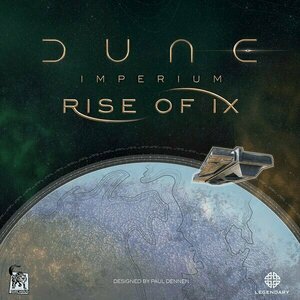
Dune: Imperium - Rise of Ix
Tabletop Game
Conflict spreads across the Imperium in Dune: Imperium – Rise of Ix, the first expansion to the...
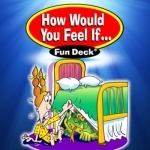
How Would You Feel If ... Fun Deck
Education and Games
App
This colorful, educational social skills App for the iPhone®, iPad®, and iPod touch® has all 56...
The Marinated Meeple (1853 KP) rated Splendor in Tabletop Games
Mar 14, 2018
Simple and Fun (3 more)
Easy to Teach
Easy to learn
Great gateway game
The theme might not be amazing, but the art is solid, and the games for simplicity and elegance can't be beat.
My wife and I play this all the time, we go on vacation and play on the beach under a cabana. It's a simple engine building game, with simple mechanics, you either collect three different jewels or two of the same, or you buy a card using those jewels to get permanent jewels. You get victory points for the higher value cards which are harder to get. We tend to make the game longer by adding to the number of victory points needed to win, we play to 22.
Brumpolarbears (22 KP) rated Sushi Go! in Tabletop Games
Jun 19, 2019
A great fast-paced game that is fun for all the family. Easy to pick up rule set, with a cute and colourful rule set. Easy to slip into your bag for train journeys or holidays. The aim of the game is for you to amass the most points by grabbing the best combination of sushi from the deck. An incredibly competitive game that can see your strategy go right out of the window if fellow players get wind. Do you go for the big points and risk not being able to get that final card you need, or do those small points rack up and earn you the victory you want?
Purple Phoenix Games (2266 KP) rated Final Challenge in Tabletop Games
Oct 1, 2021
Have you got some stiffs in your gaming group? Do you introduce lots of new gamers to the hobby? Are you looking to get up off the table every once in a while and just play something wacky? Well, I may have the answer for you here. I am a natural performer, so many things do not affect me, and I do not have performance anxiety AT ALL. But what if you have a table with a bunch of people who do not really know each other? What do you pull out then? I might suggest you keep reading.
Final Challenge is a crazy party game for up to six players. In it, players are attempting to earn cards from different categories in order to place themselves in the Final Challenge round where they will attempt to compete for all the marbles.
DISCLAIMER: We were provided a prototype copy of this game for the purposes of this review. These are preview copy components, and I do not know for sure if the final components will be any different from these shown. Also, it is not my intention to detail every rule in the game, as there are just too many. You are invited to download the rulebook, back the game through the Kickstarter campaign coming October 2021, or through any retailers stocking it after fulfillment. -T
To setup, shuffle all the cards in the game (in this prototype version I was given a smattering of each type of card, including several from planned expansions) and make a large draw pile. Place the timer nearby and give each player a player board and reminder card. Determine the first player and the game may begin!
On a turn, the active player will check their board to see if they have any active challenges. These are challenge cards that have specific timing applied in order to complete. Completed challenges are either placed face-down on their board or discarded. Next, the active player draws the top card from the deck and has three choices: Perform the Challenge, Ask for Volunteers, or Attack Another Player.
The active player will most often prefer to Perform the Challenge by reading the card’s challenge aloud and attempting to satisfy the requirement. Other players at the table are the judges in determining if the attempt is successful or not. If so, the challenge is placed face-down on the player’s board. If unsuccessful, the card is discarded. As this is the only way to progress in the game, it is usually the best bet on a turn.
However, the player may not wish the complete the challenge and can Ask for Volunteers to help perform the challenge. Whomever accepts and completes will win the card and be able to place it in front of themselves for a quick extra boost of completed challenges.
Should the active player not wish to complete the challenge drawn, and to Attack Another Player, they may assign the challenge to another player who already has completed a challenge of the same type previously. This offers some benefit to the assigned player, as they may collect another card of a similar type, and forces them the complete the challenge card instead of the active player. Should the attacked player lose, however, they lose not only the attacking card, but the face-down card they have previously completed!
Once a player has locked (earned completed face-down cards) one challenge card of each type, they have unlocked the Final Challenge. On the back of each challenge card is one word. When placed on the player board the words will spell out a ridiculous prompt that the active player will need to perform in order to win the Final Challenge. In the example photo below, the prompt is: Mischievous Cavegirl Uses Force On Someone’s Ear While Moaning Loudly. Therefore, in order to win this Final Challenge, the active player will need to exemplify this prompt to the satisfaction of the other players/judges. Think about how you would complete this one.
After a successful Final Challenge, the winner collects the red Personality card to add to their winnings. On the backs of red cards are abilities that are now in effect for the rest of the game. The winner is the player who collects two red cards. The rules indicate any stopping point that is agreed upon by the players is acceptable, but they suggest just to two.
Components. Again, this is a prototype copy of this game, and I do not know which, if any, components will be different in the final version. That said, what I received was a box of cards, player boards, reminder cards, and a sand timer. Also included were card dividers, which confused me since the cards are to be shuffled for play. I like the direction the game is going, especially with regards to aesthetics. In a crazy over-saturated niche of party games, Final Challenge is trying to be a little different. The art is quirky, and that is definitely not a bad thing here. All the text is easily legible and the sand timer… works. It is fine as is, but I am sure that a successful Kickstarter will improve all the components in the game.
I am definitely not a party game kind of guy. My wife always makes fun of me when I groan at them, like I am some board game snob. And maybe I guess I really am. I know how I would like to spend my gaming time, and usually it is not with a party game. That said, Final Challenge does offer something a little different by having each card present a challenge that could be storytelling, actions, impersonations, and all kinds of cuckoo… but I like it. Now, I think every game has its place, and for me and my typical game groups, this would be a great one to pull out when I introduce fresh gamers into the hobby, or as something to completely break the ice/tension. As long as all players understand that they may need to get out of their comfort zones to have a good time with it, Final Challenge can be that entry into the hobby for some.
My highest-rated party game to this point is Happy Salmon, and I use it for silliness between heavier games, or to help re-energize my players. It works wonders, and I love it for that. I don’t think Final Challenge will replace Happy Salmon for me for its purpose, but I definitely can see instances when I would need something with just a little more meat on its bones, but still in the ridiculous category. So if you are in need of a weird, quick, zany, little card game (with origins in Serbia – how many Serbian games do you have?) then check out Final Challenge, coming to Kickstarter in October.
For those more raunchy gamers, I have some insight for you as well. I said earlier that Kerber was kind enough to pepper this copy with a few cards from expansions as well, and one of them is the “Rated R Expansion.” I won’t give you exact examples of cards from that set, but just as a levels-check, two cards I pulled from the normal deck has this text on the front, “You have ended up in a talent show. Tell a joke. If no one laughs, you lose.” On the back of this it says, “Their Nipples.” Another example from the core set is, “Someone in this group just got immensely attractive. Point that person out by casually looking at them in a seductive manner until your next draw.” On the back? It says, “While Praying.” Soooooooo, the fronts and backs don’t necessarily have anything to do with each other… but they could. Enjoy the game, everyone!
Final Challenge is a crazy party game for up to six players. In it, players are attempting to earn cards from different categories in order to place themselves in the Final Challenge round where they will attempt to compete for all the marbles.
DISCLAIMER: We were provided a prototype copy of this game for the purposes of this review. These are preview copy components, and I do not know for sure if the final components will be any different from these shown. Also, it is not my intention to detail every rule in the game, as there are just too many. You are invited to download the rulebook, back the game through the Kickstarter campaign coming October 2021, or through any retailers stocking it after fulfillment. -T
To setup, shuffle all the cards in the game (in this prototype version I was given a smattering of each type of card, including several from planned expansions) and make a large draw pile. Place the timer nearby and give each player a player board and reminder card. Determine the first player and the game may begin!
On a turn, the active player will check their board to see if they have any active challenges. These are challenge cards that have specific timing applied in order to complete. Completed challenges are either placed face-down on their board or discarded. Next, the active player draws the top card from the deck and has three choices: Perform the Challenge, Ask for Volunteers, or Attack Another Player.
The active player will most often prefer to Perform the Challenge by reading the card’s challenge aloud and attempting to satisfy the requirement. Other players at the table are the judges in determining if the attempt is successful or not. If so, the challenge is placed face-down on the player’s board. If unsuccessful, the card is discarded. As this is the only way to progress in the game, it is usually the best bet on a turn.
However, the player may not wish the complete the challenge and can Ask for Volunteers to help perform the challenge. Whomever accepts and completes will win the card and be able to place it in front of themselves for a quick extra boost of completed challenges.
Should the active player not wish to complete the challenge drawn, and to Attack Another Player, they may assign the challenge to another player who already has completed a challenge of the same type previously. This offers some benefit to the assigned player, as they may collect another card of a similar type, and forces them the complete the challenge card instead of the active player. Should the attacked player lose, however, they lose not only the attacking card, but the face-down card they have previously completed!
Once a player has locked (earned completed face-down cards) one challenge card of each type, they have unlocked the Final Challenge. On the back of each challenge card is one word. When placed on the player board the words will spell out a ridiculous prompt that the active player will need to perform in order to win the Final Challenge. In the example photo below, the prompt is: Mischievous Cavegirl Uses Force On Someone’s Ear While Moaning Loudly. Therefore, in order to win this Final Challenge, the active player will need to exemplify this prompt to the satisfaction of the other players/judges. Think about how you would complete this one.
After a successful Final Challenge, the winner collects the red Personality card to add to their winnings. On the backs of red cards are abilities that are now in effect for the rest of the game. The winner is the player who collects two red cards. The rules indicate any stopping point that is agreed upon by the players is acceptable, but they suggest just to two.
Components. Again, this is a prototype copy of this game, and I do not know which, if any, components will be different in the final version. That said, what I received was a box of cards, player boards, reminder cards, and a sand timer. Also included were card dividers, which confused me since the cards are to be shuffled for play. I like the direction the game is going, especially with regards to aesthetics. In a crazy over-saturated niche of party games, Final Challenge is trying to be a little different. The art is quirky, and that is definitely not a bad thing here. All the text is easily legible and the sand timer… works. It is fine as is, but I am sure that a successful Kickstarter will improve all the components in the game.
I am definitely not a party game kind of guy. My wife always makes fun of me when I groan at them, like I am some board game snob. And maybe I guess I really am. I know how I would like to spend my gaming time, and usually it is not with a party game. That said, Final Challenge does offer something a little different by having each card present a challenge that could be storytelling, actions, impersonations, and all kinds of cuckoo… but I like it. Now, I think every game has its place, and for me and my typical game groups, this would be a great one to pull out when I introduce fresh gamers into the hobby, or as something to completely break the ice/tension. As long as all players understand that they may need to get out of their comfort zones to have a good time with it, Final Challenge can be that entry into the hobby for some.
My highest-rated party game to this point is Happy Salmon, and I use it for silliness between heavier games, or to help re-energize my players. It works wonders, and I love it for that. I don’t think Final Challenge will replace Happy Salmon for me for its purpose, but I definitely can see instances when I would need something with just a little more meat on its bones, but still in the ridiculous category. So if you are in need of a weird, quick, zany, little card game (with origins in Serbia – how many Serbian games do you have?) then check out Final Challenge, coming to Kickstarter in October.
For those more raunchy gamers, I have some insight for you as well. I said earlier that Kerber was kind enough to pepper this copy with a few cards from expansions as well, and one of them is the “Rated R Expansion.” I won’t give you exact examples of cards from that set, but just as a levels-check, two cards I pulled from the normal deck has this text on the front, “You have ended up in a talent show. Tell a joke. If no one laughs, you lose.” On the back of this it says, “Their Nipples.” Another example from the core set is, “Someone in this group just got immensely attractive. Point that person out by casually looking at them in a seductive manner until your next draw.” On the back? It says, “While Praying.” Soooooooo, the fronts and backs don’t necessarily have anything to do with each other… but they could. Enjoy the game, everyone!
